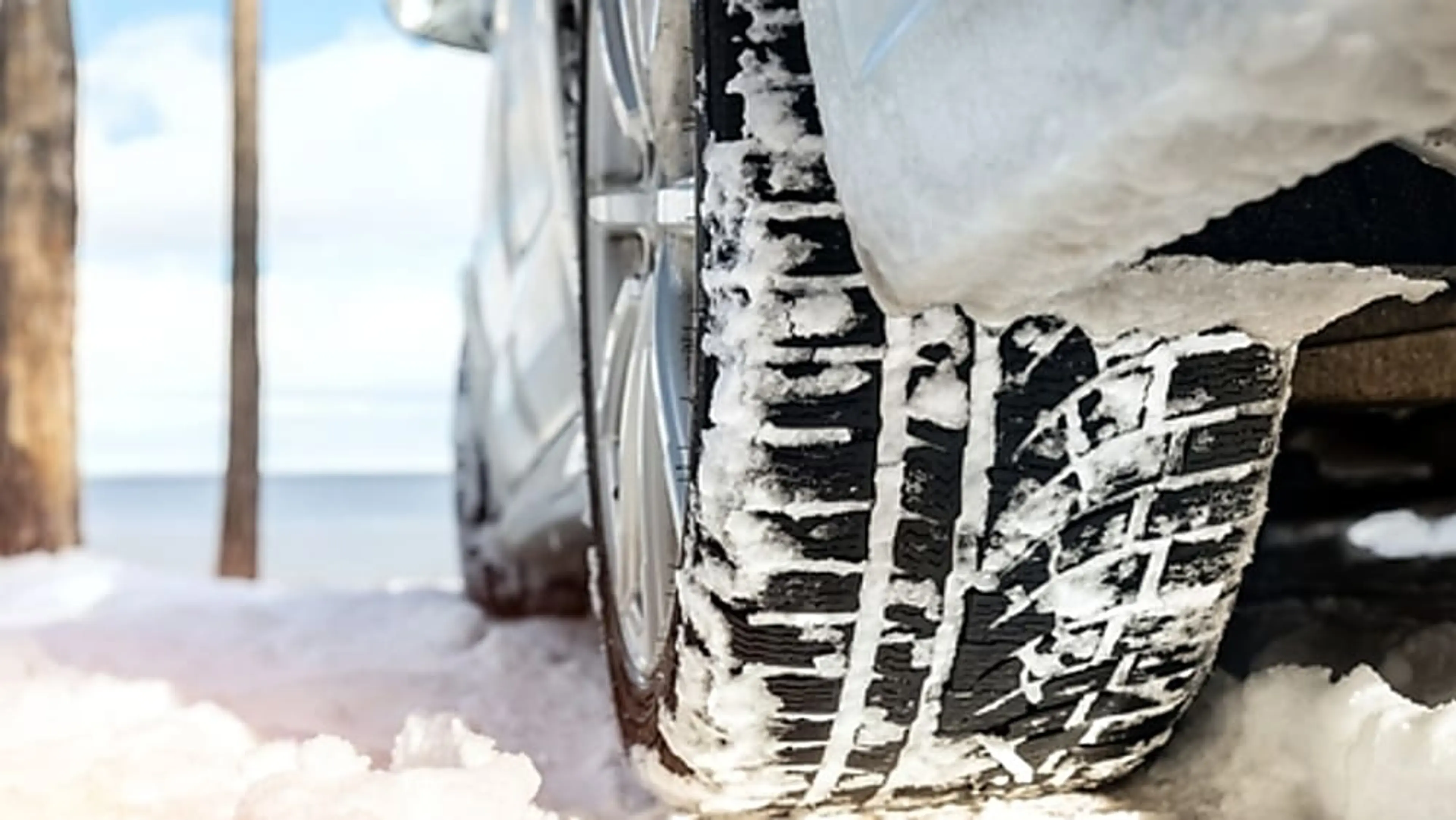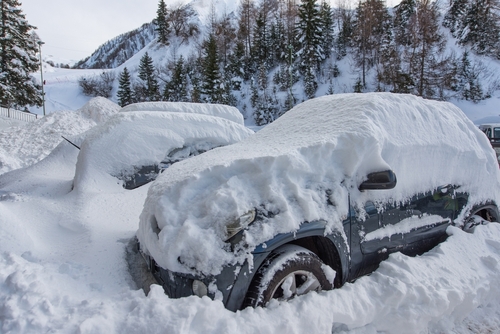Tire maintenance & safety
When should I replace my winter tires?

Tire maintenance & safety

Love it or hate it, winter driving is unavoidable in most parts of the country.
Winter conditions can test the skill of even the most seasoned drivers. Adapting to winter weather changes with specialized tires is the difference between dreading your commute and relishing a drive in the snow.
When the weather gets colder it’s time to start preparing to replace your seasonal tires. As seasonal tires come out of storage, it’s important to make sure each tire is still ready to roll, so that you can better handle harsh winter weather.
The answer is more straightforward than you might assume. Tire manufacturers recommend replacing winter tires when the tread depth reaches 4/32”. Tires are considered bald at 2/32". Replacing your seasonal tires before this point is critical for your safety and the safety of others on the road.
Bald tires are always a recipe for disaster but in winter driving conditions they can prove deadly. Skilled drivers know all the tips to stay safe on winter roads but even the most experienced among them can fall victim to loss of traction with inadequate treads.
How long a set of winter tires can be predicted to last is based on several factors. The longevity of tires depends on the quality of the tires themselves, the number of miles driven, and the quality of the surfaces the tires are in contact with.
For instance, high-quality winter tires that are lightly driven on well-maintained roads can be expected to last longer than a lower-quality option that's driven off-road or on rough road surfaces.
Even with these variables in place, there are some guidelines to follow when replacing winter tires.
According to statistics from the U.S. Department of Transportation, the average American drives 13,476 miles per year. Nearly 4,500 of those miles are driven on winter roads. The average tire travels around 50,000 miles before it needs to be replaced.
Using these numbers as guidelines you can assume your winter tires will last you several cold seasons with proper use.

Winter tires are specifically engineered for hard weather and cold conditions. They perform their best in temperatures at or below 45 degrees, remaining flexible at lower temps than all-year options. Operating winter tires above these temperatures can cause them to wear out much faster.
Technically, there is no need to switch out your tires at the end of the cold season but you wouldn't be doing yourself any favors.
Proper seasonal rotation is an important part of winter tire maintenance. Ask yourself this, is skipping a quick change-out worth sacrificing a significant portion of your winter tire's lifespan?
There are several surprising consequences of driving on winter tires year-round. Beyond just wearing out your seasonal set faster, winter tires can cost you more at the pump.
Seasonal tires are made with deeper and wider tread patterns to grip the street's surface in icy, wet winter conditions. This means higher resistance and lower fuel economy.
This tradeoff is worth it for the added safety and performance in winter weather but in summer it's just an added expense. When coupled with the expense of replacing your tires faster it's clear that not switching out winter tires can be costly.
Winter tires are designed for optimal handling and performance in a very specific set of circumstances. They are made with a softer rubber compound to remain flexible as the temperature plummets. This softer tread means less grip in warmer conditions. In short, your vehicle will be less responsive when equipped with cold-weather tires in warm seasons.
Technically, there is no one reason why it's important to swap out your seasonal tires, there’s a variety of reasons that compound upon each other. After you've invested in a set of high-quality seasonal tires, choosing to ignore their specialized features is costly and will cause headaches down the road.
With proper maintenance and rotation, a set of top-quality winter tires could last as many as ten seasons. When you consider the cost of this specialized equipment spread across ten years of reliable service, the value of these tires becomes clear.
When well taken care of and used appropriately, winter tires can reduce your overall costs. You will save yourself both time and money by adhering to a proper rotation schedule.
Avoid unnecessary hours spent replacing winter tires that should have lasted you several seasons by taking them off when the weather warms up.
Depending on the length of the cold season in your area, you could have your winter tires on anywhere from three to five months of the year.

Relying on your year-round tires the rest of the year is the easiest way to get the most longevity out of your winter set. Don't think you're saving yourself time by neglecting to switch out at the end of the cold season.
Not only could you find yourself spending more time shopping for seasonal tires but you may well find yourself spending more time on other maintenance as your car works harder to keep soft winter tires rolling on warm roads.
Knowing when to switch out your winter tires for an all-year set will extend the lifetime of your seasonal equipment. After several seasons of proper use, be sure to monitor the depth of your tread and the tire’s sidewall so that you don't have any necessary replacements sneak up on you. You certainly don't wait until the cold weather sets in to realize your winter tires are bald and unsafe.
With a little bit of preparation and planning, your winter tires can last you a very long time. Regularly observing your tread depth will give you plenty of advance notice to replace your winter tires when they've reached the end of the road.
Search By